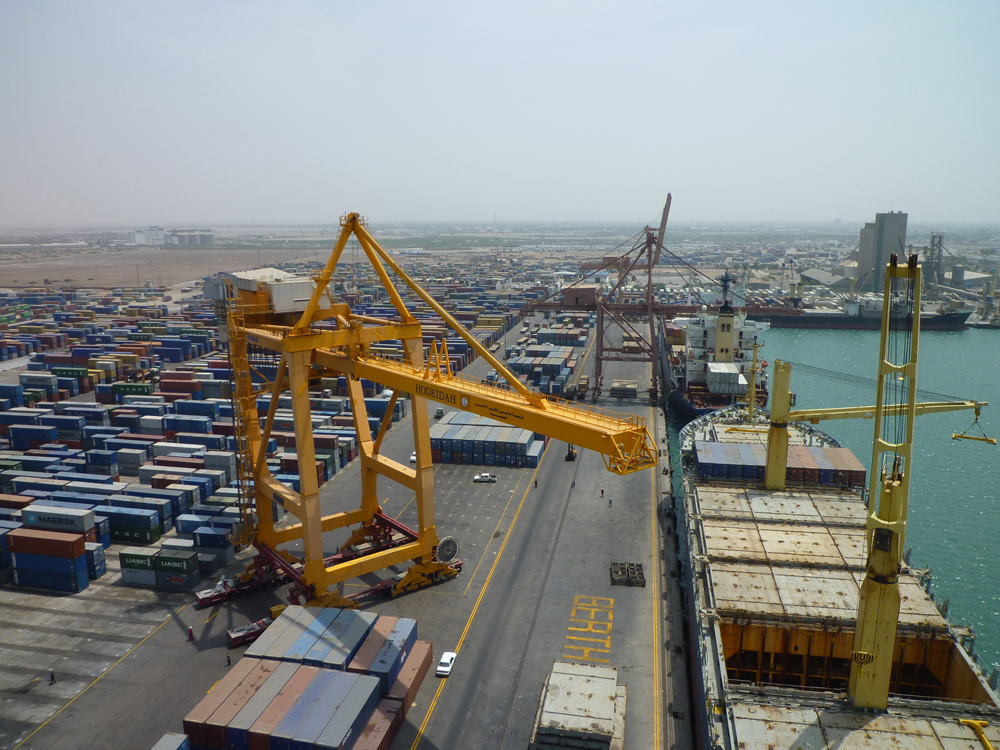Alwaght- Saudi regime's bloody onslaught on Yemen could take an even grimmer turn if the port city of Al Hudaydah is attacked, the UN refugee agency has warned on Wednesday.
"Between 100,000 and half a million people could be displaced as the conflict and humanitarian situation continue to worsen," said Shabia Mantoo, the spokesperson for the United Nations High Commission for Refugees.
Speaking from the Red Sea city of Hudaydah Mantoo said the humanitarian situation alone continues to worsen even without the conflict intensifying.
Activists have warned that any Saudi coalition attacks on the city would endanger the 1 million residents who reside in Hudaydah, as well as the over 2.5 million in the southern Yemeni province of Taiz. Likewise, the UN has warned that further attacks by the Saudi-led and US-backed coalition would “need to take into account the need to avoid any further deterioration in the humanitarian situation.”
Large-scale displacement
Fears of large-scale displacement are exacerbated by rampant food insecurity in Hodeidah that the office of the UN High Commissioner for Human Rights says has reached critical levels. The Red Sea port, which is controlled by the Yemeni forces and Ansarullah movement, is the main point of entry for an estimated 80 percent of the war-torn country's food imports and relief aid.
“Any attack on the port would severely disrupt the ability to import goods via this critical route, including much of the humanitarian aid and most of the commercial imports that are so urgently needed,” several humanitarian groups said in a statement last week.
“Even optimistic estimates indicate that a military operation with minimal damage to infrastructure would put the port out of action for at least six weeks. For a country potentially down to its last few weeks of wheat supplies in some areas, such disruption could be catastrophic.”
Last week UN human rights chief has expressed deep concern over a possible Saudi-led attack on Yemen’s key port of al-Hudaydah.
"The UN is concerned about the humanitarian repercussions of such an attack in terms of inflaming the humanitarian crisis even further, let alone our concerns about loss of civilian life were there to be a large-scale attack on port," Zeid Ra'ad al Hussein told a news conference in Geneva.
19 Million Yemenis lack access to food as Saudi bombs fall on them
According to a report last week by the UN Office for the Coordination of Humanitarian Affairs, 19 million Yemenis, or around 60 percent of the population, lack any sort of access to food as bombs and missiles continue to fall on the country's ruined infrastructure.
Russian Deputy Foreign Minister Gennady Gatilov told a donor conference in Geneva that, "Alarming rumors are mounting that there are preparations underway to storm Al Hudaydah and for a further offensive against Sana’a. This should be prevented. The scale of this awful Yemenite tragedy will significantly increase." Gatilov also stressed the need to end the conflict in Yemen so as to ease the humanitarian situation.
The Saudi regime claims that al-Hudaydah port, a life line for war-battered Yemenis, is being used to smuggle weapons, an assertion which has been rejected by Yemenis who blame the Saudi-led coalition of making baseless allegations.
Saudi regime backed by UK, US, Israeli regime in war on Yemen
Saudi Arabia launched brutal aggression against its southern neighbor on 27 March 2015 in a bid to restore power to Yemen's resigned president who fled to Riyadh after Yemeni people's uprising in 2015.
Western countries especially the US and Britain are among key suppliers of weapons used by the Saudi regime to commit atrocities and war crimes in Yemen.
The Israeli regime and the US continue to provide aerial support to Saudi bombardment of Yemeni civilians including providing aerial refueling of coalition jets.
Over 12,000 Yemenis, mostly civilians including women and children, have been killed during the ongoing Saudi-led aggression on Yemen. The military aggression has also taken a heavy toll on Yemen’s facilities and infrastructure, destroying many hospitals, schools, mosques and factories.



























